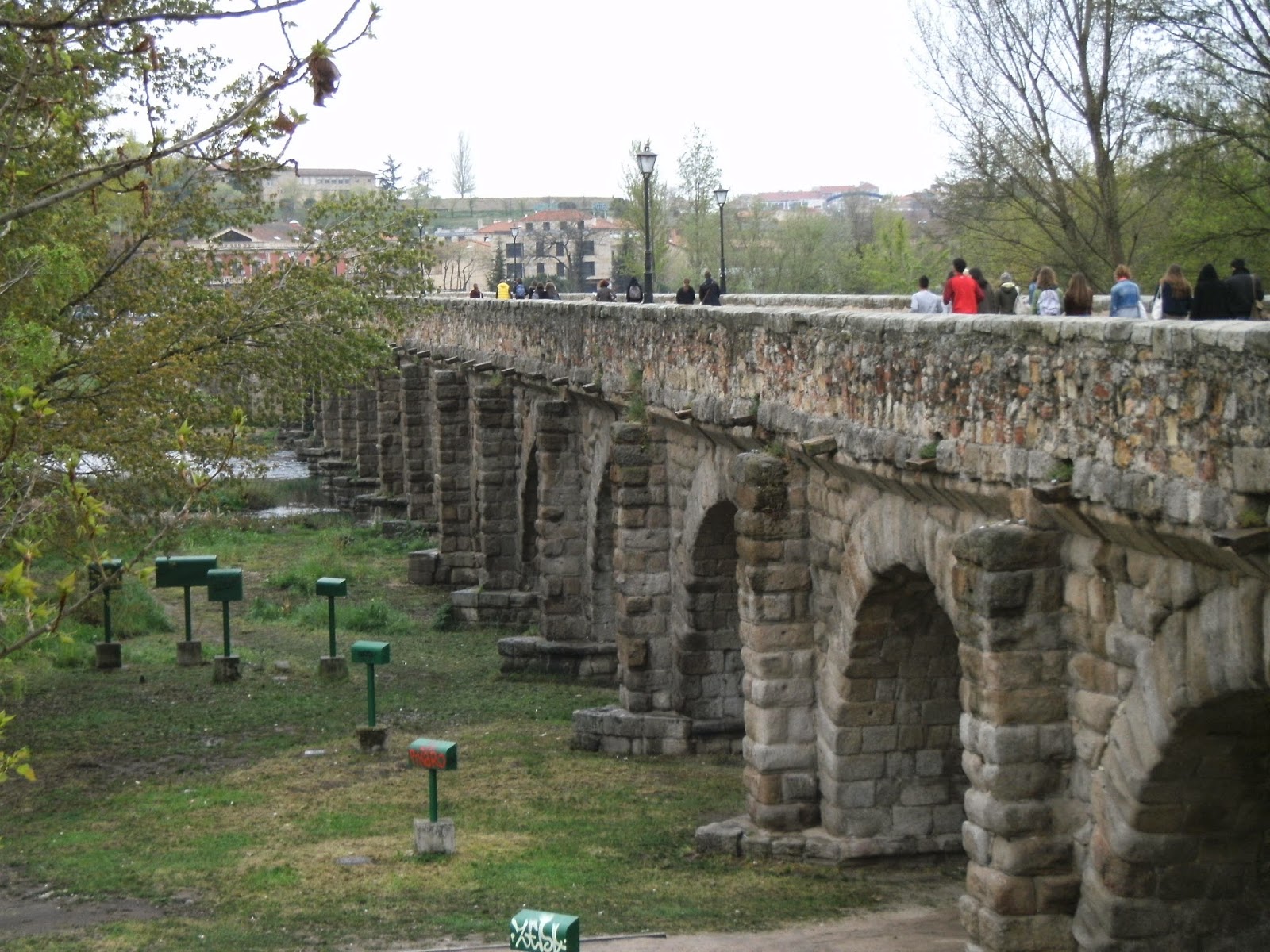About
thirty minutes from our destination, the heavens opened. Luckily, we’d
consulted the Internet and carried waterproofs and umbrellas. We were dropped
off a short walk from the Plaza Mayor, the famous 18th century
square – one of Spain’s largest and grandest. Here we stopped for a coffee and
empanadilla. On the east side of the square is the Royal Pavilion,
decorated with a bust of Felipe V, who built the square (though I believe he
had some help…) 1729-1755. I spotted a bust of the Duke of Wellington, too.
Cathedrals, old
and new
We
risked the rain and headed for the Cathedrals; there’s an old one and a new
one. The terms ‘new’ and ‘old’ are relative, however: the 16th century
new cathedral didn’t replace the old but was constructed beside it. So you
enter the new and turn right to enter the old, the 12th and 13th
century Romanesque cathedral. Here, you can see surviving wall paintings and
the astonishing altarpiece with its 53 panels in lustrous colours. In the vault
above is a fresco depicting scenes from the Last Judgement.
Roman Bridge
When
we finally emerged from the new cathedral, the rain had stopped and we walked
to the roman bridge, which crosses the river Tormes and was built in 1AD. It
still retains fifteen of its original 26 arches (some have been reconstructed
due to damage by flooding over the years. Still visible on the ashlars of the
arches are the holes of the Ferrei forceps or ‘big tweezers’ used to place
them. Similar holes can be seen on the aqueduct of Segovia.
Roman bridge
Lazarillo de Tormes
Overlooking
the roman bridge and the river Tormes is a charming statue
dedicated to the novella The Life of Lazarillo de Tormes and of His Fortunes and Adversities, a
picaresque book published anonymously in 1554. It concerns a boy, Lázaro, from
Salamanca; his mother gives little Lázaro (Lazarillo) to a blind beggar to
serve an apprenticeship, where he learns about the various levels of society, the
ills, and the hypocrisies. Lazarillo is the fore-runner of anti-heroes such as
Tom Jones and Huckleberry Finn. The book appeared on the list of forbidden
books of the Spanish Inquisition, due to its critical stance regarding authority
(the Catholic Church and the aristocracy). [http://www.classicspanishbooks.com/lazarillo-de-tormes.html]
Jen in front of the statue to Lazarillo de Tormes
Next: University and the
conch house





No comments:
Post a Comment